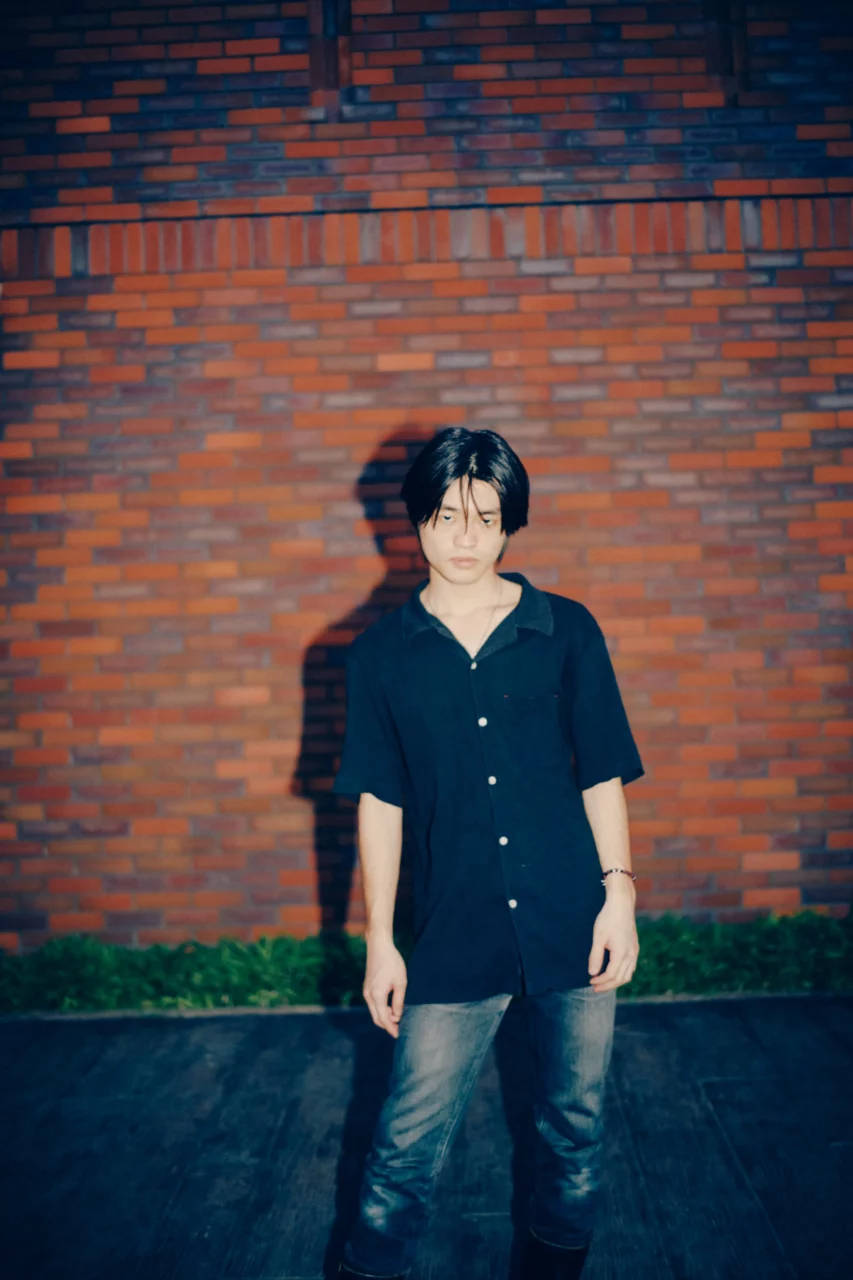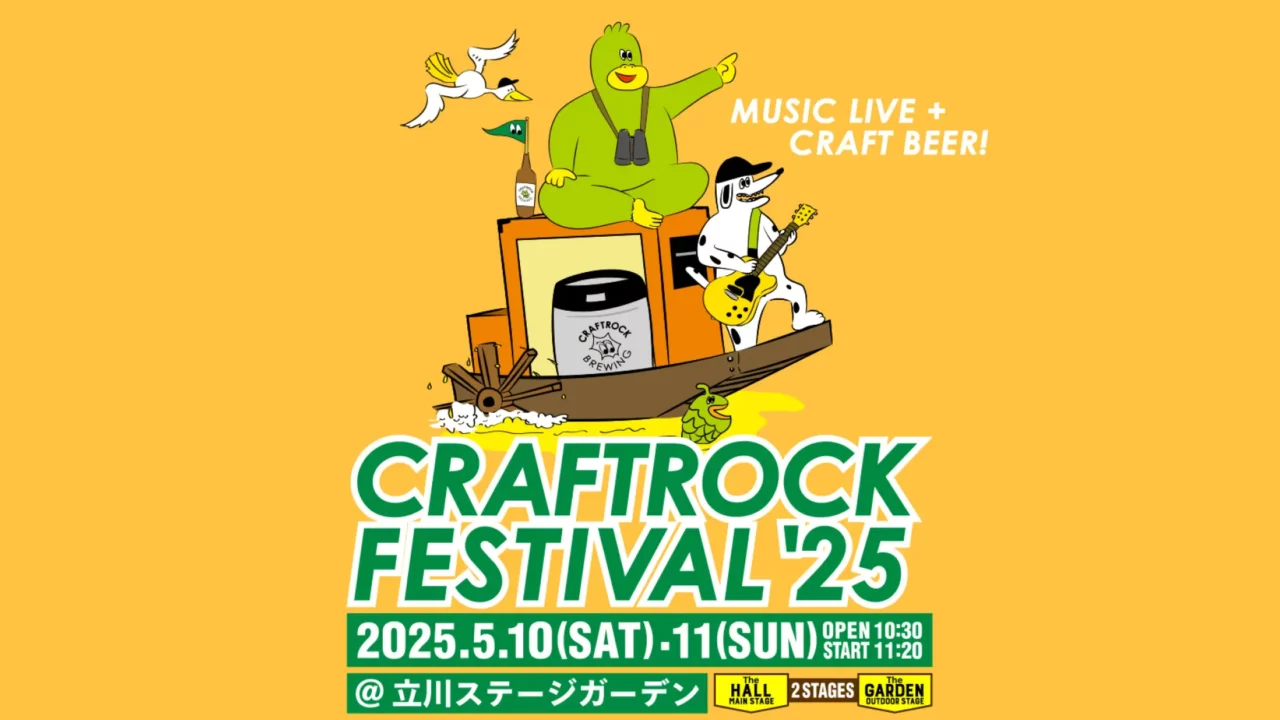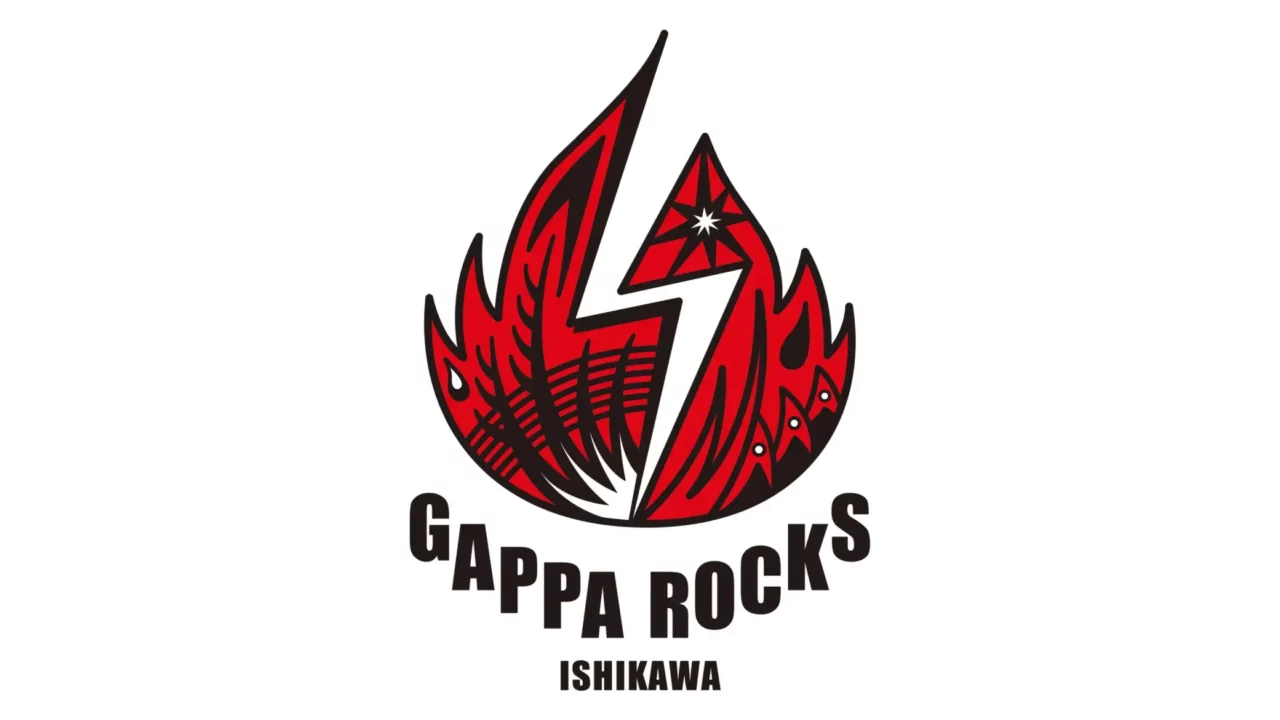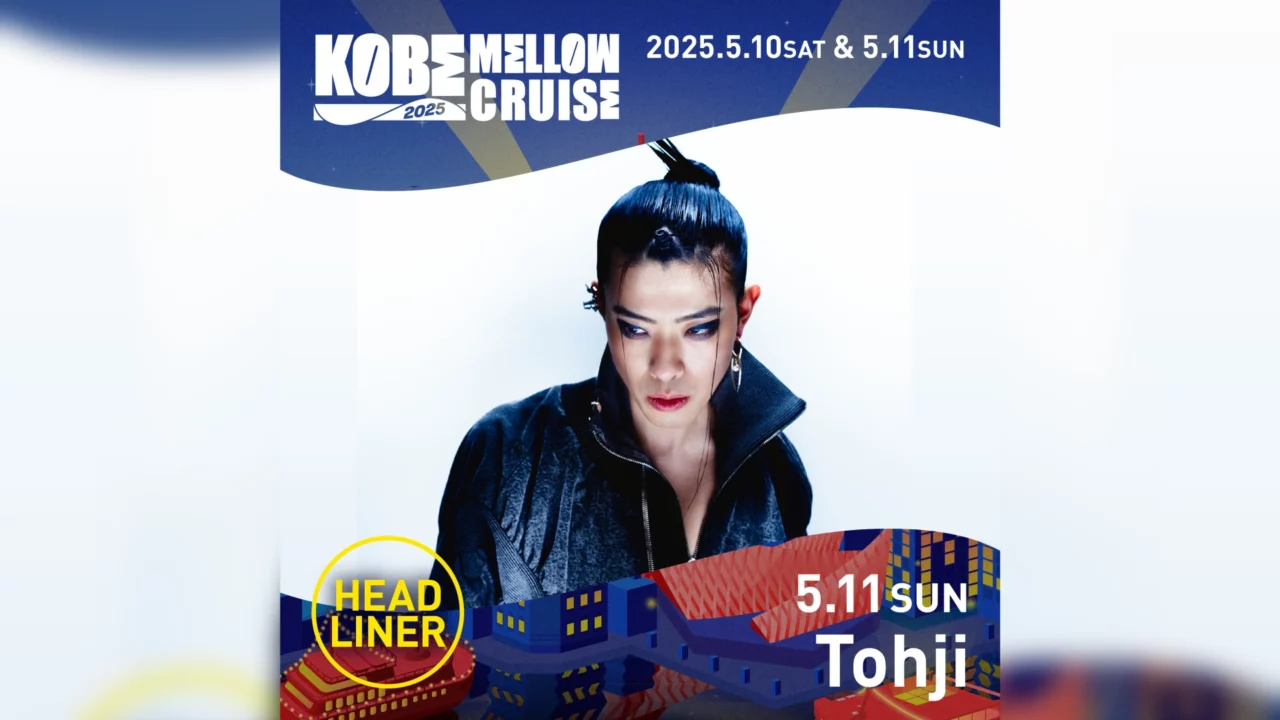Summer Whales, a two-piece band from Kyoto, draws influences from grunge and post-punk, channeling them into their own authentic expression. The band features Ao, a cool and strong-willed guitar vocalist and composer who sometimes handles mixing and mastering himself, and Ryo Kubo, a reserved guitarist known for his affinity for classic bikes, reportedly influenced by Kenichi Asai. The duo shares a deep passion for rock music, which has become a defining aspect of Summer Whales’ distinctive identity.
In July, they released their first EP, ‘Doughy’. The title, meaning ‘underdone’, reflects the raw and unique sensibility of the band, hinting at the limitless potential of their sound. To gain a deeper understanding of this intriguing duo, we conducted an interview.
INDEX
How Coldplay’s ‘Viva La Vida’ Shaped Summer Whales‘ Musical Journey
Summer Whales was formed in August 2022. Could you tell us how the band came together?
Aoi: We formed the band in the university’s light music club. That club was focused on cover bands, but we decided to try doing original songs as well. So, I started it with Daiki (Daiki Tsukuda), who was a former member and played bass.
What kind of artists did the club cover?
Aoi: We covered bands like Pale Waves and Fugazi.
At first, Ryo Kubo was involved as a support member of Summer Whales, right?
Aoi: That’s right. Ryo is a year below me in school. We hadn’t talked much before, but he was technically skilled, so I asked him to support us for about a year. After that, I asked him to officially join the band.
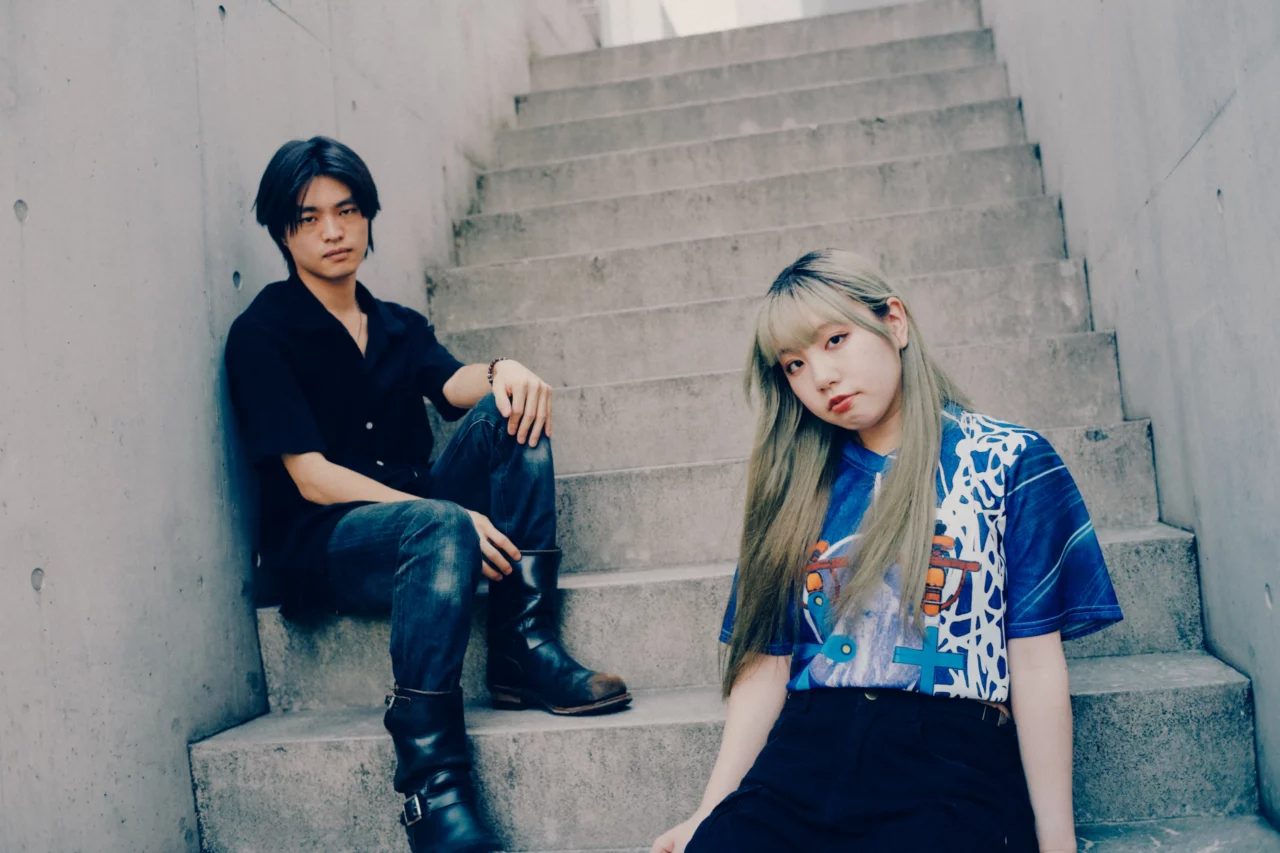
A band consisting of Ao (vocals/guitar) and Ryoga Kubo (guitar). With a sound reminiscent of ’90s alternative grunge rock and international indie music, combined with an ennui-filled, husky vocal style, they have captured attention at various radio stations and live houses from the very beginning. Their songs, which blend stylish, edgy rock with catchy pop arrangements, feature surprising developments and high-quality melodies that captivate listeners from the first listen. The seamless transition between English and Japanese lyrics, delivered with a pleasant pronunciation, is also one of their attractions.
When you first decided to create original music, did you have any specific vision in mind?
Aoi: Not really. I still don’t have a fixed vision. I don’t have a set genre or atmosphere for the songs I want to create.
How did each of you become so deeply involved in music?
Aoi: Music was always playing in the car at home, regardless of genre, when I was a child. Among that, I started to really like band songs. Once I got a smartphone and a computer, I began researching bands on my own and became increasingly fascinated. The first time I was truly struck by how amazing music could be was when I heard Coldplay’s “Viva La Vida.” I think the beauty and grand scale of it were a huge shock for me.
What was the turning point for you, Ao, from just listening to music to wanting to create it?
Aoi: Initially, I had a strong desire to be in a band. I felt this strongly from around middle school. I thought that in order to continue being in a band, we needed to have original songs. While not everyone might think this way, I believed that having original songs was essential for keeping a band going.
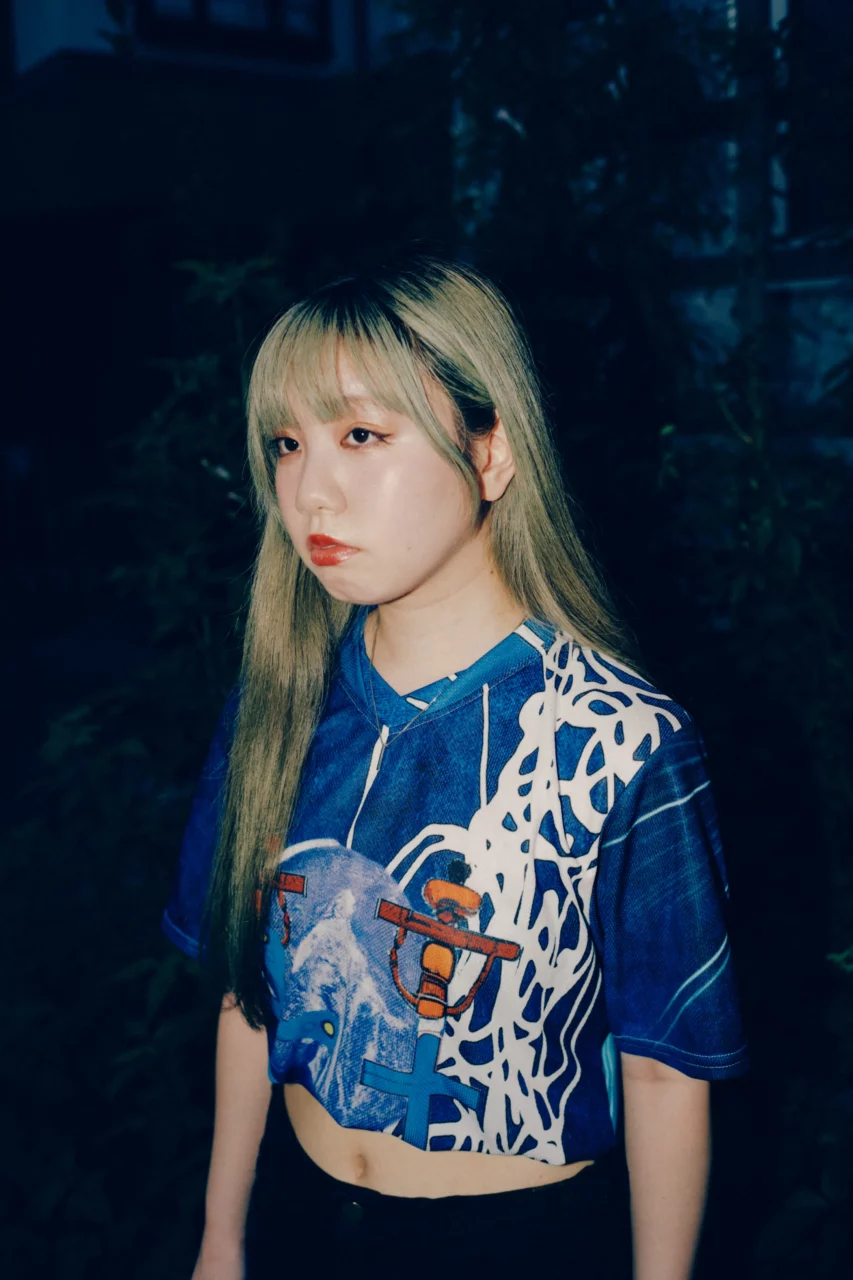
How did you get into music?
Kubo: It all started with listening to music in my parents’ car, especially THE BLUE HEARTS. I was a huge fan of Masatoshi Mashima, particularly his solo album Natsu no Nukegara. Since I didn’t have much else to do in middle school, I listened to that album repeatedly. I was really the type of middle school student who just kept listening to the same album over and over.
Was it a natural progression for you to start playing guitar yourself?
Kubo: Yes, it was. I actually started playing guitar in middle school, but again, since I didn’t have much else to do [laughs]. I didn’t have many friends, and when I came home from school, I had no choice but to play guitar at home.
